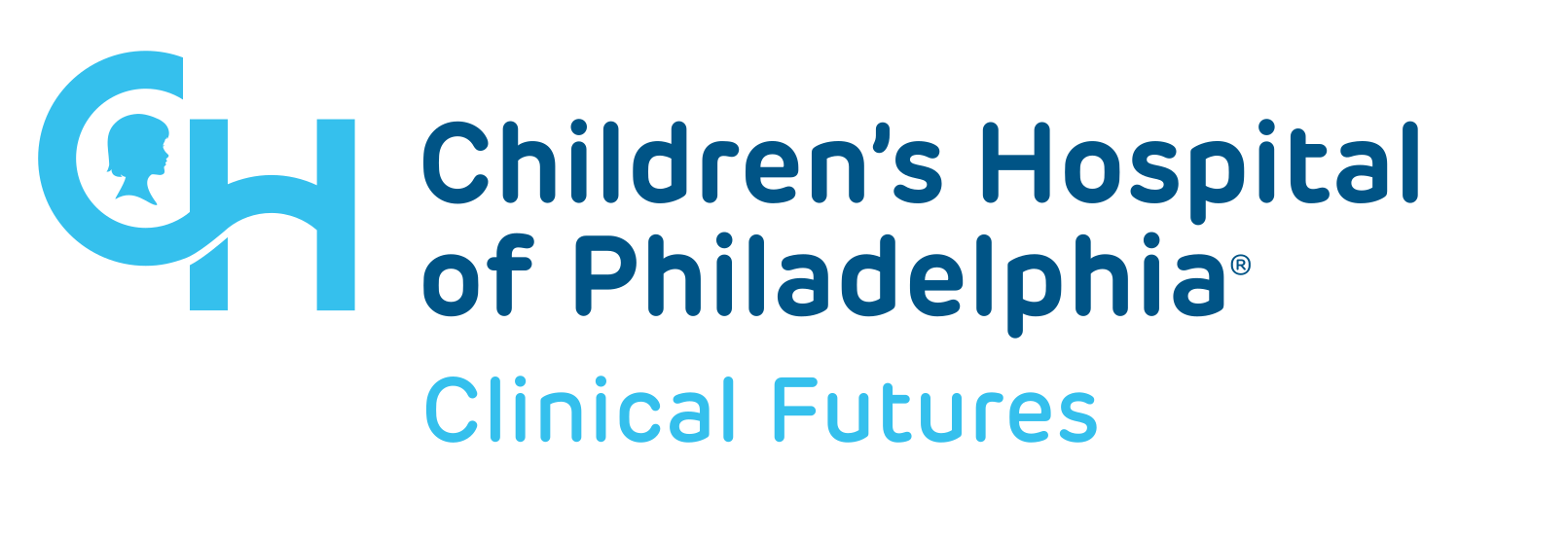What is Implementation Science?
Implementation science is the study of methods and strategies that promote uptake of evidence-based research and practices. Implementation science offers rigorous methods to address the barriers that hinder and facilitators that support uptake of proven health interventions, speeding up the translation of research to practice.
Key features of implementation science:
- Enhances evidence-based healthcare
- Focuses on strategies to overcome barriers to implementation of evidence-based practices
- Contains rigorous scientific methods and conceptual frameworks
- Leverages multi-disciplinary science; closely aligned with clinical epidemiology, behavioral medicine, and social science
Learn more about the basics of implementation science research:
- Implementation science made too simple: a teaching tool
- Conducting research in implementation science
To join the Implementation Science Pillar email distribution list and learn about future events and opportunities, please complete this brief survey.
Is my research ready for Implementation Science?
To be “ready” for implementation research, the intervention or practice of interest that will be studied must have evidence of effectiveness— there must be substantial proof that the intervention or practice improves health.

(Source: Lane-Fall, M.B., Curran, G.M. & Beidas, R.S. Scoping implementation science for the beginner: locating yourself on the “subway line” of translational research. BMC Med Res Methodol 19, 133 (2019). https://doi.org/10.1186/s12874-019-0783-z)
Click here for a resource to help determine whether an intervention or practice of interest is ready for implementation science methods.
How do I apply Implementation Science to my work?
Step 1: Frame your question
Identify your research to practice gap.
- What is the evidence-based practice that’s underused?
OR - What is the harmful/non-evidence based practice that is overused?
Resource:
- Implementation science made too simple: a teaching tool
Step 2: Select Theories/Models/Frameworks to guide your work
Theories, models, and frameworks (TMFs) help guide your research by providing structure and identifying factors that could affect implementation. There are 3 main categories of TMFs:
- Determinant frameworks: help identify barriers and facilitators to implementation
- Process frameworks: help identify steps required to implement a practice of interest
- Evaluation frameworks: help understand the effectiveness of an implementation effort
The Consolidated Framework for Implementation Research (CFIR) is the most widely used framework for identifying facilitators and barriers to implementation and matching them to implementation strategies. Click here for a simple guide to CFIR.
Resource:
- Making sense of implementation theories, models and frameworks
Step 3: Identify implementation strategies
Implementation strategies are the “interventions” in implementation research—the “stuff we do to get people to do the thing.” The selection and tailoring of implementation strategies should be informed by the implementation context, theory, and stakeholder input.
Resources:
- Methods to Improve the Selection and Tailoring of Implementation Strategies
- A refined compilation of implementation strategies: results from the Expert Recommendations for Implementing Change (ERIC) project
- Implementation mapping to plan for a hybrid trial testing the effectiveness and implementation of a behavioral intervention for HIV medication adherence and care retention
Step 4: Select your research method
Decide which research method is the best match for your research question. Methods from a wide array of scientific fields can be applied in implementation research.
Resource:
- The Many Methods of Implementation Science
Step 5: Select your study design
Your study design will enable you to rigorously evaluate the implementation of your evidence-based intervention or practice of interest. Both randomized and non-randomized designs are used in implementation science research.
Resource:
- An Overview of Research and Evaluation Designs for Dissemination and Implementation
Step 6: Choose outcome measures
The measures you select may capture effectiveness, implementation, or process outcomes, or a combination of the three.
Resources:
- Advancing the application, quality and harmonization of implementation science measures
- Measuring factors affecting implementation of health innovations: a systematic review of structural, organizational, provider, patient, and innovation level measures
Step 7: Get funded
Both federal agencies and private foundations fund implementation science research.
Resources:
- Writing implementation research grant proposals: ten key ingredients
- Sample grant applications to the National Cancer Institute
Step 8: Report results
There are several academic journals dedicated to implementation science. It is also important to share your findings with those who participated in the research, including clinical and community partners.
Resource:
- Relevant Journals for Identifying Implementation Science Articles: Results of an International Implementation Science Expert Survey
How can I learn more about Implementation Science?
Instructional videos about Implementation Science
Click here for a series of brief videos explaining fundamental concepts in implementation science, designed with the goal of making implementation science methods more accessible.
Implementation Science Institute at Penn
The purpose of the Penn Implementation Science Institute is to provide participants with the tools to design and execute rigorous implementation science research. The Institute will give an introduction to the foundations of implementation science (i.e., terminology, conceptual models and frameworks, study design). Students will also receive an overview of advanced topics including implementation strategies and sustainability. The course directors will cover tips for grant writing, skill development and time will be spent writing specific aims for implementation science grants. The course will also explicitly describe how principles of implementation science can be applied to practical implementation efforts.
Penn Implementation Science Certificate Program
The Implementation Science Certificate Program at Penn aims to equip trainees with the knowledge and skills to conduct rigorous, contextualized, and meaningful implementation research and practice. Specifically, the training will enable trainees to meet the following competencies:
- Describe theory and frameworks to design implementation research studies
- Describe multilevel contextual factors that impact implementation to execute implementation research at multiple ecological levels (i.e., individual, organizational, community, and policy)
- Select appropriate research methodologies for implementation science (e.g., randomized controlled trials, quasi-experimental trials, adaptive trials, observational studies)
- Describe measurement issues and implementation outcomes
- Design mixed methods research
- Describe importance of cultivating community partnerships and inter-disciplinary research teams to improve practice partnerships
- Identify ethical issues specific to implementation research, including considerations of justice and equity
- Communicate research findings clearly to diverse stakeholder audiences, using plain language
Foundations in Implementation Science- Virtual Course (IMP 6000)
Offered by the Penn Implementation Science certificate program, the purpose of this course is to introduce participants to the foundations of implementation science (i.e., terminology, conceptual models and frameworks, study design). Participants will develop an in-depth understanding of the historical and theoretical underpinnings of implementation science, preparing them to describe the positionality of their research within the broader field. Relevant theories and frameworks will be addressed in the context of multiple disciplines, such as healthcare, social work, education, and criminal justice. Significant group work will prepare participants to evaluate the appropriate usage of frameworks, theories, and models in the design and execution of implementation science research. Contact Kate O’Boyle (kathryn.oboyle@pennmedicine.upenn.edu) for more information.
Implementation Science in Health and Healthcare (HPR 6200)
Offered by Penn’s Master of Science in Health Policy program, this course presents a survey of the field of implementation science in health. The structure of the course will include two parts. In the first part, instructors will introduce the field of implementation science, with an emphasis on theory, design and measurement. In the second part, the course will focus on applied implementation science which will include examples of research programs in implementation science as well as applying insights of implementation science to practical implementation. An emphasis on qualitative and mixed methods approaches is included.
How can I meet colleagues, workshop my ideas, or stay up to date on Implementation Science?
The Clinical Futures Implementation Science Pillar brings together expert, novice, and aspiring implementation science researchers who are working to close the gap between what we know and what we do.
Co-Directors
Chris Bonafide, MD, MSCE
and 
Danielle Cullen, MD, MPH, MSHP
Staff Lead
Rachel Brown, MPH
Implementation Science Pillar offerings include:
- Guidance on development of implementation science research questions, study design, and methodology
- Facilitating collaboration between implementation scientists with complementary goals
- Educational and networking events to build implementation science capacity at CHOP
- Trainings in cutting edge implementation science methods
To join the Implementation Science Pillar email distribution list and learn about future events and opportunities, please complete this brief survey.
To join the Penn Implementation Science Center (PISCE) mailing list, click here.
Implementation Science Projects at Clinical Futures
Eliminating Monitor Overuse (EMO)
Continuous pulse oximetry monitoring of oxygen saturation is a common intervention used while treating bronchiolitis. However, overuse of pulse oximetry monitoring in stable patients no longer needing extra oxygen can lead to prolonged hospitalizations, increased risk of harm, and contribute to alarm fatigue. The EMO trial has two goals. The first seeks to identify effective strategies for de-implementing the overuse of pulse oximetry practices in infants experiencing bronchiolitis. The second centers on sustainability – or understanding how best to maintain these reductions in pulse oximetry practices over time. Prior work has shown successful reductions in the use of pulse oximetry in the short term.
Faculty Contributor: Chris Bonafide, MD, MSCE
Implementing the Sleep Well! Intervention in Urban Primary Care
Behavioral sleep problems such as insomnia and insufficient sleep are associated with deleterious childhood physical and mental health outcomes. However, these outcomes are modifiable, particularly in early development. This K23 project addresses a critical need for accessible, evidence-based behavioral sleep interventions for lower-socioeconomic status (SES) children. Sleep Well!, an effective behavioral sleep intervention was adapted so that its contents and service delivery methods are appropriate for lower-SES preschoolers and the primary care context. Pilot data support feasibility and acceptability of the intervention.
Affiliate Faculty Contributor: Ariel Williamson, PhD
Health Coaching to Improve Comprehensive HIV and Sexually Transmitted Infection Prevention in Adolescent Primary Care
Pediatric primary care providers (PCPs) are well-positioned to expand pre-exposure prophylaxis (PrEP) delivery as HIV and sexually transmitted infection (STI) infection rates continue to rise in the United States. However, sexual health service delivery in primary care is hampered by PCP time constraints and competing demands. There is a critical need for both behavioral interventions to increase PrEP uptake and reduce STIs in adolescents and implementation strategies to disseminate PrEP and enhanced sexual health services in adolescent primary care. This trial’s main goals are implementation optimization and testing of a PrEP-inclusive health coaching intervention to reduce HIV and STI incidence among adolescents and young adults, which aims to be scalable across primary care networks.
Faculty Contributor: Sarah Wood, MD, MPH
Implementation Researcher Spotlight
Gwendolyn Lawson, PhD
My research focuses on supporting the quality of services youth with or at-risk for mental health problems receive in community settings, particularly K-12 schools. As a former teacher and a clinical psychologist who trained in school settings, I have seen firsthand the importance of supporting children in schools and other settings where they spend much of their time. I have also seen how challenging it can be to implement evidence-based practices in these settings. Ultimately, in alignment with Clinical Futures’ mission, I hope my work will support child wellbeing by helping address some of these implementation challenges.
My work aligns with Clinical Futures’ Implementation Science pillar, as I use implementation science methods to identify and test approaches to address research-practice gaps. For example, my K23 award from the National Institute of Mental Health (NIMH) culminated in a small-scale hybrid implementation-effectiveness pilot trial of a set of implementation strategies to support teachers in using evidence-based behavior management practices. I am now extending that work with a newly-funded R34 grant that aims to develop and then pilot test coordinated and parallel set of implementation resources for parents and caregivers. Together, these projects highlight how individuals other than traditionally-trained mental health clinicians can be conceptualized as the implementers of evidence-based practice and supported using approaches from implementation science. I am also beginning to work on new collaborations in which I serve as an implementation scientist to support projects focused on other content areas.
I also draw on principles of community participatory research throughout my work. I recently guest edited a special issue of the journal School Mental Health focused on research-practice partnerships and the development of interventions and implementation strategies to support youth mental health in K-12 school settings. The special issue includes an introduction paper, 19 empirical articles, papers from scientists at two funding agencies, and two commentaries. Implementation science is a prominent theme throughout many of the papers. I think many of them may be of interest to researchers who work in settings other than schools, as many of the methods described could be more widely applicable.
Molly Davis, PhD
My research focuses on identifying and preventing adolescent depression and suicide risk in community settings, particularly schools and primary care. Across projects, I incorporate implementation science methods and principles to enhance the translational relevance of our research findings. Often, implementation science is thought of as corresponding to the end of the translational research spectrum, meaning that a healthcare practice has already been found to be efficacious and effective.
Now it is time to think about implementing it in the real world. I aim to have an eye towards implementation early on in the research process so that even in the beginning stages of developing and testing a new tool or program, we are preparing for eventual implementation to maximize impact. For example, I am a co-investigator on an NIMH-funded P50 Center, the ETUDES Center, which involves developing and testing novel prediction tools and intervention programs for addressing adolescent depression and suicide risk in pediatric primary care.
Part of my role in that Center is overseeing the implementation science aspects of the R01 and three R34 projects, making sure we are assessing constructs such as the feasibility and acceptability of the tools and interventions being developed, key perceived barriers and facilitators to implementation, and so forth to enhance the likelihood of successful implementation and sustainment in routine care down the road.
One of my other main, current projects is a study funded by the Klingenstein Third Generation Foundation to adapt an evidence-based depression prevention program, Interpersonal Psychotherapy-Adolescent Skills Training (IPT-AST), for primary care. This project focuses on partnering closely with clinicians, adolescents, and caregivers to understand what adaptations may be necessary to embed IPT-AST in primary care in the future. Collaborating with key community partners is critical for enhancing the likelihood that our research benefits the individuals and systems it is meant to help.




